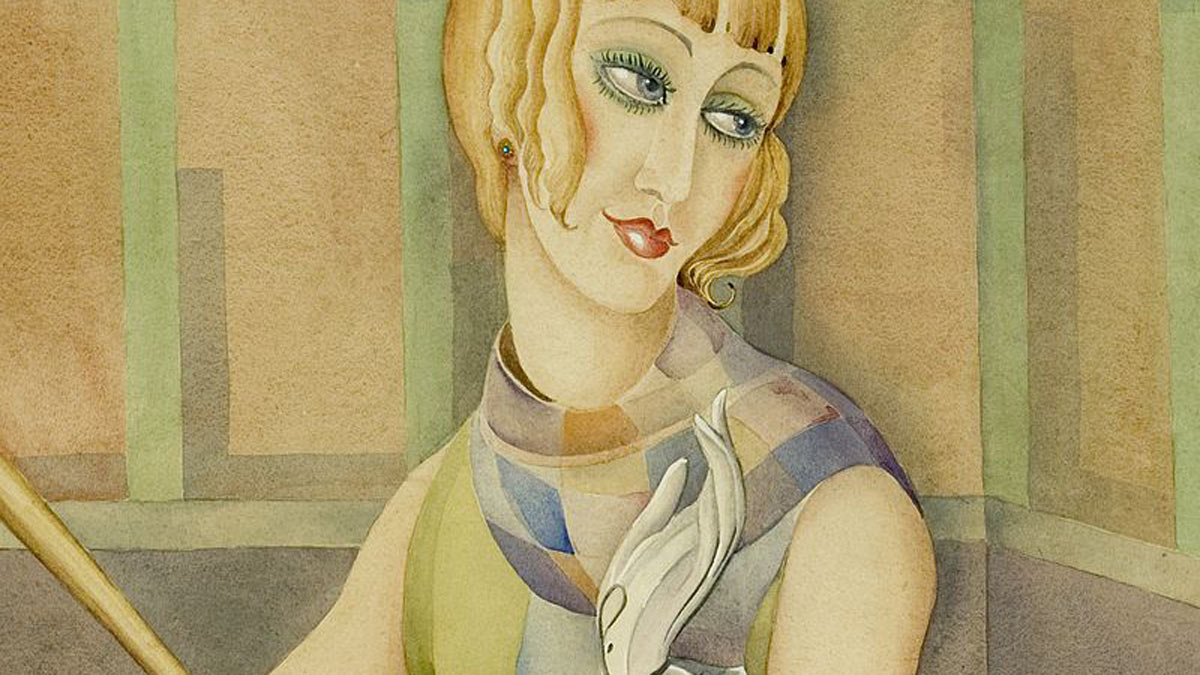Lili Elbe: the transgender artist behind The Danish Girl
One of the first in the world to undergo pioneering surgery, Lili was a 20th-century transgender icon

A free daily email with the biggest news stories of the day – and the best features from TheWeek.com
You are now subscribed
Your newsletter sign-up was successful
The Danish Girl, a bestselling book and upcoming film, is introducing new audiences to Lile Elbe, a transgender artist and one of the first people in the world to undergo gender reassignment surgery.
Lili was born Einar Wegener in rural Denmark in 1882 and identified as male for most of his life. A landscape painter, he went to the Royal Danish Academy of Fine Arts in Copenhagen where he met Gerda Wegener, a successful artist and illustrator who would go on to work for high-fashion magazines Vogue and La Vie Parisienne. The couple married young and had no children.
Einar's first transition into Lili happened by chance, according to the Daily Telegraph. When one of Gerda's models failed to turn up for a painting, she suggested that Einar – with his tall, slim physique - wear the clothes instead. At first he resisted, but eventually gave in to the suggestion.
The Week
Escape your echo chamber. Get the facts behind the news, plus analysis from multiple perspectives.

Sign up for The Week's Free Newsletters
From our morning news briefing to a weekly Good News Newsletter, get the best of The Week delivered directly to your inbox.
From our morning news briefing to a weekly Good News Newsletter, get the best of The Week delivered directly to your inbox.

"Lili was originally created to serve as a substitute model for Einar's artist wife but became a companion to her and an escape from masculinity for Wegener himself," explains Bernice Hausman of the University of Iowa English Department.
Writing in his diary at the time, Einar said he felt surprisingly comfortable in the dresses and stockings. "I cannot deny, strange as it may sound, that I enjoyed myself in this disguise. I liked the feel of soft women's clothing," he wrote. "I felt very much at home in them from the first moment."
Einar began questioning his gender identity and was soon openly living as a woman called Lili. He and Gerda travelled through Italy and France, allegedly to escape the rumours that were spreading, finally settling in Paris in 1912.
The period between the 1910s and 1920s was "kind of a high-water mark for trans and queer culture in Europe," says Susan Stryker, transgender historian and filmmaker and professor at the University of Arizona.
A free daily email with the biggest news stories of the day – and the best features from TheWeek.com
Lili embarked on a series of pioneering and extremely risky gender reassignment surgeries in Germany. She later described her transition as a rebirth into the woman she always knew she was. The surgeries allowed her to become legally recognised as a woman and she received a passport with the name Lili Elba.
Lili and Gerda remained in relationship for many years, despite her transition. "[The Danish Girl] depicts Gerda as a heterosexual woman who is married to a man who is going through a gender transition, and that there’s something tragic about her losing her husband," said Stryker. However, many have suggested that Gerda was actually trans-friendly and bisexual. "I don't necessarily think that she was expecting the life that she had with Lili, but she seemed incredibly open to it," said Stryker.
However, the two went on to divorce amicably in 1930. Lili began a relationship with art dealer Claude Lejeune and was looking forward to her final surgery involving a uterus transplant, so that they could one day have children. But she died from post-operative complications the following year, just days away from her 50th birthday.
The story of her life has been made into two books - Man into Woman (first published in 1933) and The Danish Girl(2001), adapted into film starring Eddie Redmayne due out in January next year.
[[{"type":"media","view_mode":"content_original","fid":"84188","attributes":{"class":"media-image"}}]]
-
 How the FCC’s ‘equal time’ rule works
How the FCC’s ‘equal time’ rule worksIn the Spotlight The law is at the heart of the Colbert-CBS conflict
-
 What is the endgame in the DHS shutdown?
What is the endgame in the DHS shutdown?Today’s Big Question Democrats want to rein in ICE’s immigration crackdown
-
 ‘Poor time management isn’t just an inconvenience’
‘Poor time management isn’t just an inconvenience’Instant Opinion Opinion, comment and editorials of the day